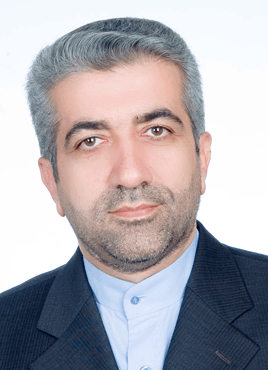- ON THE DECADE
- THE DECADE'S CAMPAIGN
- REPORTING ON PROGRESS
- THE DECADE'S PROGRAMMES
- FOCUS AREAS
-
- Access to sanitation
- Financing water
- Gender and water
- Human right to water
- Integrated Water Resources Management
- Transboundary waters
- Water and cities
- Water and energy
- Water and food security
- Water and sustainable development
- Water and the green economy
- Water cooperation
- Water quality
- Water scarcity
- FOCUS REGIONS
- RESOURCES FOR
- UN e-RESOURCES
International UN-Water Conference. Water in the Green Economy in Practice: Towards Rio+20. 3-5 October 2011
Session 5: The contribution of water technology to job creation and development of enterprises
 "Aiming at a green economy for sustainable growth requires solving of pressing water and sanitation issues."
"Aiming at a green economy for sustainable growth requires solving of pressing water and sanitation issues."
Reza Ardakanian
Convener: UN-Water Decade Programme on Capacity Development (UNW-DPC)
Date: 4 October 2011
Time: 11:30 – 13:00
Place: Plenary Room
Speakers and panelists
- Overview of the session: Dr. Karl Ulrich Rudolph, Co-ordinator of the UNW-DPC Working Group on CD in Water Efficiency.
- Discussion with panelists:
Case 1. Burkina Faso: Mr. Dieudonné Sawadogo, Secretary General of ONEA.
Case 2. Egypt: Dr. Hani Sewilam, Programme Officer, UNW-DPC.
Case 3. India: Dr. Rajiv Kumar Gupta, IAS, Principal Secretary, Climate Change Department, Government of Gujarat, Republic of India.
Overview of the tool
This overview  introduces water technology and discusses how technologies can contribute to job creation and the development of enterprises, supporting the transition to a green economy. It reflects on challenges faced, how the tool helps overcome the challenges, and lessons learnt from implementation.
introduces water technology and discusses how technologies can contribute to job creation and the development of enterprises, supporting the transition to a green economy. It reflects on challenges faced, how the tool helps overcome the challenges, and lessons learnt from implementation.
Cases in the Plenary
- Case 1: Improvement of water supply through a GIS-based monitoring and control system for water loss reduction in Africa. Ouagadougou, Burkina Faso

This case highlights a pilot project that has been implemented to reduce water losses within the distribution system of the municipal utility in Ouagadougou. The components of the process include leak detection devices, pressure and flow control sensors with real-time and online data transmission, automated pressure valves, and an intelligent GIS-based computerised system to steer the whole process. Local jobs were created through the investment in and continuous operations of the water loss reduction programme. The programme also improved water efficiency, water supply and attitude amongst customers, awareness of the importance of protecting water resources and caring for public water supply property. - Case 2: Web-based System for Water and Environmental Studies, MENA Region(Middle East and North Africa) with main focus on Egypt

This case introduces an EU-funded web-based Learning Management System (LMS) for water and environmental studies, initiated by a partnership of institutions from Germany and Egypt. The system provides online courses to cover topics such as IWRM, EIA, water quality, sustainable management of resources, gender issues, socio-economics, desalination, water treatment, etc. Knowledge of environmental and water management supports newly created green jobs. Students have started businesses for decentralized water treatment units for rural areas. The universities have already signed different agreements with the local water and environment companies/consultancies to supply them with engineers with specific qualifications.
Interviewing Rajiv Kumar Gupta, Climate Change Department, Government of Gujarat, India
>> Full interview with Rajiv Kumar Gupta
- Case 3: The role of water technology in development: a case study of Gujarat State, India

This case introduces technical initiative 'State Wide Drinking Water Grid' for bulk water transmission from sustainable surface water resources to water scarce and poor water quality habitations implemented in Gujarat, India. The state also established the Water and Sanitation Management Organisation (WASMO), which was a significant shwift in the role of governance from provider to facilitator by empowering village level institutions through extensive capacity building and pro-active facilitation. The initiative results in a Reduction in number of villages under tanker water supply from 3961 in 2002-03 to 326 in 2008-09 and reduction in costs of tanker water supply from 10 million US$ to just 0.25 million US$ 96% saving.
Case studies table
This table  includes cases presented during the conference as well as additional cases which illustrate successful implementation of the tool. These will contribute to the preparation of input for the Rio+20 conference.
includes cases presented during the conference as well as additional cases which illustrate successful implementation of the tool. These will contribute to the preparation of input for the Rio+20 conference.
>> Conference Home
>> Statements from UN Agencies
>> Video recording of sessions

>> Ch1 Water on the Road to Rio+20
>> Ch2 Challenges and opportunities for water in the transition to a GE
>> Ch3 Thematic conference papers
>> Ch4 Conference summary: Water in the GE in practice
>> Ch5 The way forward
>> A1 Water toolbox: A contribution to Rio+20
>> A2 Feedback report
>> A3 Communications report
>> Case papers by tool
>> By region 
>> Developing countries 
>> Developed countries 
>> Agenda 
>> Economic instruments
>> Green jobs
>> Sustainable financing
>> Investments for biodiversity protection
>> Water technology
>> Water planning
>> ESCWA region
>> LAC region
>> Conference daily
>> Interviews with case presenters 
>> Presentations
>> Communications articles
>> Conference media brief 
>> Daily press notes
>> Interviews with session conveners
>> Issues information briefs
>> Tools information briefs
>> Banners
>> Reader on water and the Green Economy 
>> Conference poster 
 >> Discussion forum
>> Discussion forum
 >> Twitter
>> Twitter
>> Water, energy and food security
>> Spanish Business Dialogue
>> Stakeholder dialogue on the Green Economy in Spain
>> Technical visit
>> Organizers
>> Participants
>> Conference committee
>> Rationale
>> Tools
>> Expected outcomes
>> 2nd UNCSD PrepCom
>> Road map to Rio+20
>> Key questions on GE
Copyright | Terms of use | Privacy notice | Site Index | Fraud alert | Help





